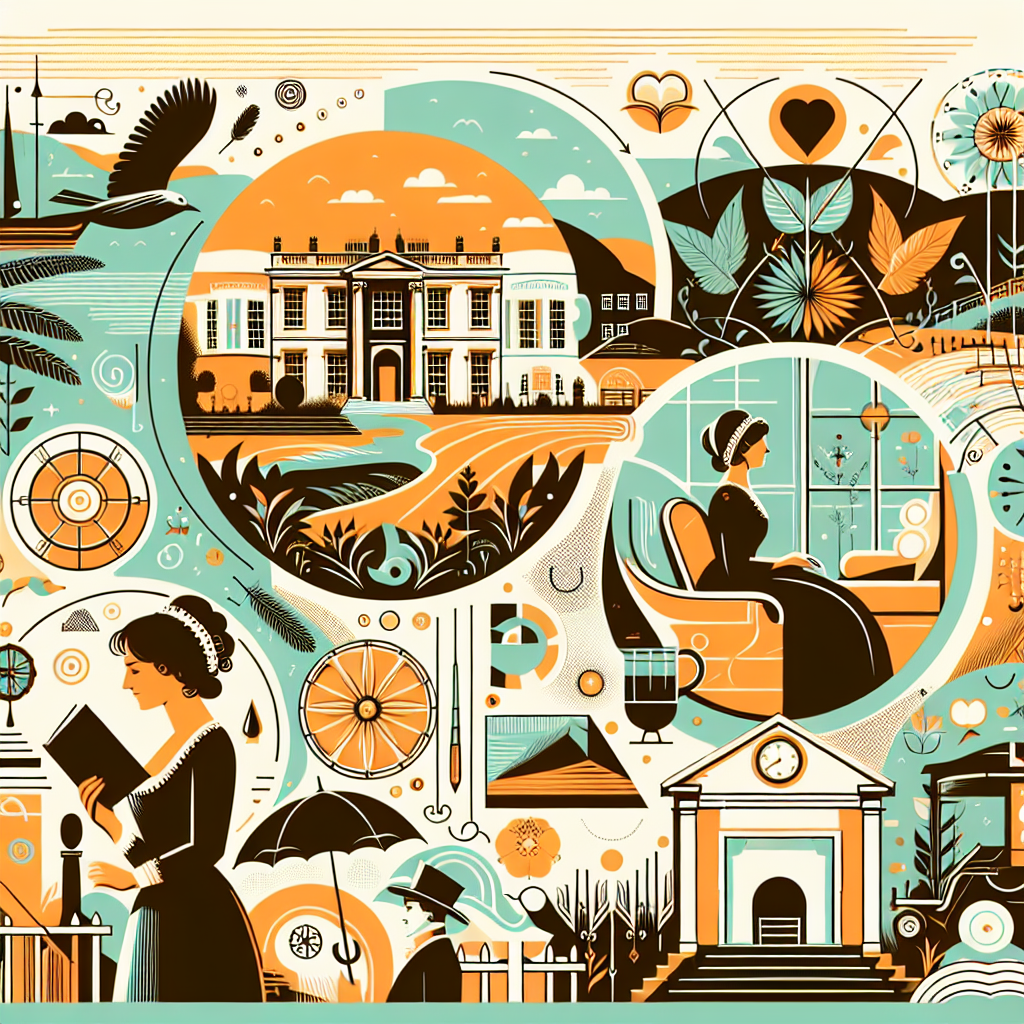Discover the Timeless Charm of Mansfield Park by Jane Austen: A Must-Read Classic!
Jane Austen’s Mansfield Park, published in 1814, stands as a fascinating and often debated work within her oeuvre. Austen, renowned for her keen social commentary and masterful characterizations, offers in this novel a deeper, more introspective examination of societal structure and personal virtue. For those familiar with her more celebrated works like Pride and Prejudice or Sense and Sensibility, Mansfield Park presents a richer tapestry that rewards readers with its complexity and moral rigor.
Significance and Context
Situated in the grander schema of Austen’s literary contributions, Mansfield Park marks a departure from the immediate warmth and comedic elements prominent in her earlier novels. This shift reflects an arguably more somber contemplation of Regency-era England’s rigid class dynamics and personal integrity. Adopting a stern gaze upon the failings and follies of the landed gentry, Austen navigates her themes with a maturity that challenges the reader to grapple with ethical dilemmas and societal decay.
Main Themes and Character Development
Central to Mansfield Park is the theme of morality versus materialism. The Bartrams—symbolic of the privileged class—display varying degrees of ethical laxity, caught in superficial lives marked by displays of wealth instead of true virtue. At the heart of this exploration stands the protagonist, Fanny Price. As a poor relation raised by her affluent uncle, Sir Thomas Bertram, Fanny offers a stark contrast to her wealthier cousins. Her steadfast moral compass and quiet resilience underscore Austen’s critique of the superficial values that permeated the upper echelons of society.
Another potent theme is the critique of theatricality versus authenticity. Austen uses the ill-fated decision to stage a play within the halls of Mansfield Park as a microcosm for examining sincerity and pretense. The tensions and eventual fallout from this choice serve as a pivotal turning point, revealing hidden character flaws and precipitating moral reckonings.
Fanny Price herself embodies complexity and growth. Initially demure and physically frail, she matures into a figure of immense inner strength and unwavering ethics. Her relationship with Edmund Bertram—the only Bertram sibling who shares her values—offers an evolving dynamic that adds depth to the narrative. Each character arc, from Mary Crawford’s flirtatious yet ultimately self-serving nature to Edmund’s gradual realization of true virtue, reinforces the novel’s thematic concerns.
Narrative Techniques
Austen deploys several narrative techniques with keen precision. Her use of free indirect discourse allows readers intimate access to Fanny’s thoughts and feelings, cultivating a sense of empathy and understanding. For example, in Chapter 23, when Fanny contemplates refusing Henry Crawford’s marriage proposal, the blend of her internal struggle with the societal pressures she faces is vividly conveyed. Austen’s penchant for irony flourishes here, offering a subjacent critique of the characters’ actions and society’s values without overt exposition.
Moreover, Austen’s intricate descriptions of Mansfield Park itself serve as a metaphor for the conservation of traditional values amidst the encroaching decay of moral structures. The estate, once a beacon of propriety under Sir Thomas’s absent oversight, begins to falter—a tangible representation of the spiritual and ethical decline confronting its inhabitants.
Cultural, Social and Historical Contexts
Mansfield Park reflects the period’s social hierarchy and the stringent gender roles imposed on women. Fanny’s subservient status within the family, delegated mixed duties with scant recognition, mirrors the limited opportunities afforded to women of her class. Additionally, Austen subtly addresses colonialism through the Bertram family’s wealth, derived from their plantation in Antigua—an implicit nod to the ethical complexities entwined with Britain’s imperial exploits.
From a historical lens, the post-Napoleonic war era backdrop adds another layer of interpretation. The social order within Mansfield Park echoes Britain’s struggles to redefine itself amidst political upheaval and shifting power dynamics.
Legacy and Lasting Influence
Despite its initial mixed reception, largely due to perceived moral didacticism and the restrained characterization of Fanny, Mansfield Park has garnered significant scholarly attention and reassessment. Modern readings appreciate its intricate moral questioning and nuanced character studies. The novel’s critique of patriarchal structures and class inequality anticipates themes in feminist and post-colonial literature.
Austen’s influence continues to permeate popular culture through adaptations and reimaginings of her work. Mansfield Park itself has seen various film and television adaptations, each reinterpreting Austen’s themes for contemporary audiences, thus underscoring its enduring relevance.
Reflective Questions and Takeaways
In revisiting Mansfield Park, one might ponder several reflective questions:
- How does Fanny Price’s moral integrity challenge or reinforce contemporary notions of virtue?
- In what ways do the Bertram family dynamics mirror current societal structures and the interplay between wealth and ethics?
- What can modern readers learn from the themes of theatricality versus authenticity in their own lives?
- How does Austen’s subtle critique of colonialism resonate in today’s ongoing conversations regarding historical accountability and systemic inequalities?
Ultimately, Mansfield Park invites readers to delve beyond the surface, offering timeless reflections on integrity, societal expectations, and personal growth. Its relevance endures, challenging each new generation to consider the balance between ethical principles and societal pressures. Thus, Austen’s nuanced exploration remains an essential classic, meriting both study and reflection.
Got more questions? Our personalized Book Explorer AI assistant is here to help. Click here to start a conversation!
[Advertisement]
Looking to find deeper meaning in the books you love? Discover how ANY book relates to positive biblical principles with Books and Scripture GPT‘ from BGodInspired.com. Click here to explore the connections that might surprise you!
[Advertisement]

